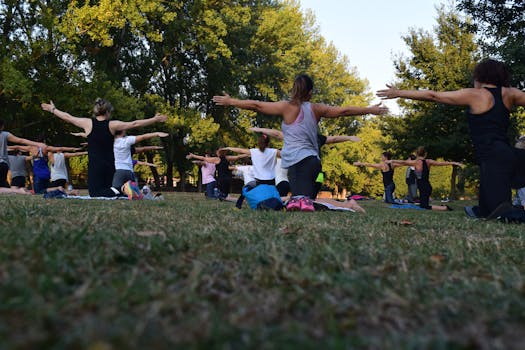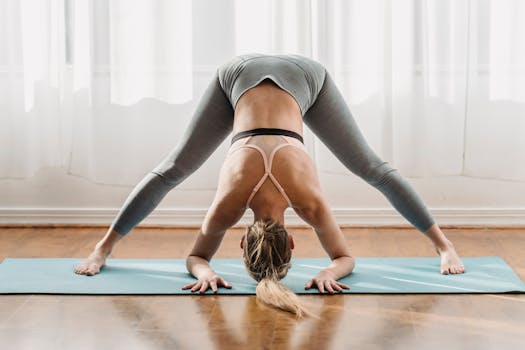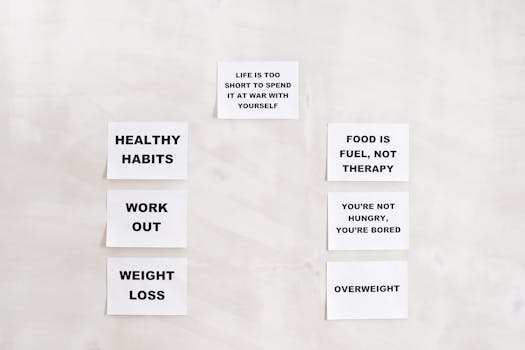Embracing a Balanced Lifestyle: A Guide to Well-being and Fulfillment
Takeaways:
- Understanding the core principles of a balanced lifestyle.
- Implementing mindfulness practices to enhance daily life.
- Exploring the importance of self-care and healthy habits.
- Creating a supportive environment for personal growth.
- Recognizing the significance of community and relationships.
Introduction to a Balanced Lifestyle

Understanding a Balanced Lifestyle
What is a Balanced Lifestyle?

The Importance of Balance
Balance is crucial for maintaining overall well-being. When we neglect certain areas of our lives, such as our health or relationships, it can lead to stress, burnout, and dissatisfaction. A balanced lifestyle helps mitigate these risks, allowing individuals to thrive in all aspects of their lives.
Core Principles of a Balanced Lifestyle
- Mindfulness: Being present in the moment and aware of your thoughts and feelings.
- Self-Care: Prioritizing your physical, emotional, and mental health.
- Healthy Relationships: Building and maintaining supportive connections with others.
- Physical Activity: Engaging in regular exercise to promote physical health.
- Nourishing Diet: Eating a balanced diet rich in nutrients.
Implementing Mindfulness in Daily Life
The Concept of Mindfulness

Practical Mindfulness Techniques
- Meditation: Set aside time each day for meditation to clear your mind and reduce stress.
- Mindful Breathing: Practice deep breathing exercises to center yourself during stressful times.
- Journaling: Reflect on your thoughts and feelings through writing, which can aid in self-discovery and emotional regulation.
- Gratitude Practice: Keep a gratitude journal to focus on positive aspects of your life.
Benefits of Mindfulness
Incorporating mindfulness into your daily life can lead to numerous benefits, including reduced stress, improved focus, enhanced emotional regulation, and better overall health. Mindfulness allows individuals to respond to life’s challenges with clarity and composure, fostering a sense of peace and well-being.
The Role of Self-Care
What is Self-Care?

Types of Self-Care
- Physical Self-Care: Engaging in regular exercise, getting enough sleep, and eating a nutritious diet.
- Emotional Self-Care: Practicing self-compassion, seeking therapy if needed, and allowing time for relaxation.
- Social Self-Care: Spending time with supportive friends and family, and engaging in activities that foster connection.
- Spiritual Self-Care: Exploring personal beliefs, engaging in spiritual practices, or spending time in nature.
Creating a Self-Care Routine
Establishing a self-care routine is vital for maintaining balance. Start by identifying areas of your life that need attention and allocate time for self-care activities. This could include setting aside time for exercise, reading, or spending time with loved ones. Consistency is key to reaping the benefits of self-care.
Building Healthy Habits
The Science of Habit Formation

Strategies for Developing Healthy Habits
- Start Small: Focus on making minor changes that can lead to significant results over time.
- Set Clear Goals: Define specific and attainable goals to guide your habit formation.
- Track Your Progress: Keep a journal or use apps to monitor your habits and celebrate milestones.
- Stay Accountable: Share your goals with friends or family to foster accountability.
Maintaining Healthy Habits
Consistency is critical when it comes to maintaining healthy habits. Create a supportive environment that encourages positive behaviors and seek support from friends or communities that share similar goals. Remember that setbacks are normal; the important thing is to stay committed to your journey.
Creating a Supportive Environment
The Impact of Environment on Lifestyle

How to Foster a Supportive Environment
- Declutter Your Space: Organize your living and working spaces to reduce stress and enhance productivity.
- Surround Yourself with Positivity: Engage with people who uplift and inspire you.
- Create Dedicated Spaces: Designate areas for specific activities, such as a reading nook or an exercise space.
Community and Relationships
Building and maintaining strong relationships is vital for a balanced lifestyle. Surrounding yourself with a supportive community can provide encouragement, accountability, and a sense of belonging. Engage in social activities, join clubs, or participate in community events to foster connections.
Conclusion

FAQs
What is the first step to achieving a balanced lifestyle?

How can I incorporate mindfulness into my busy schedule?
You can incorporate mindfulness by setting aside just a few minutes each day for meditation, deep breathing exercises, or simply being present during daily activities.
What are some easy self-care activities I can start with?
Some easy self-care activities include taking a relaxing bath, reading a book, going for a walk, or practicing yoga. Find what resonates with you and make it a regular part of your routine.
How do I stay motivated to maintain healthy habits?
Staying motivated can be achieved by setting realistic goals, tracking your progress, rewarding yourself for milestones, and surrounding yourself with supportive people who encourage your journey.
Is it normal to have setbacks in my journey to a balanced lifestyle?
Yes, setbacks are a normal part of any journey. It’s important to be compassionate with yourself and focus on getting back on track rather than dwelling on mistakes.
Sources
- Psychology Today: Understanding Mindfulness
- Healthline: Self-Care Tips
- Verywell Mind: How to Form a Habit




